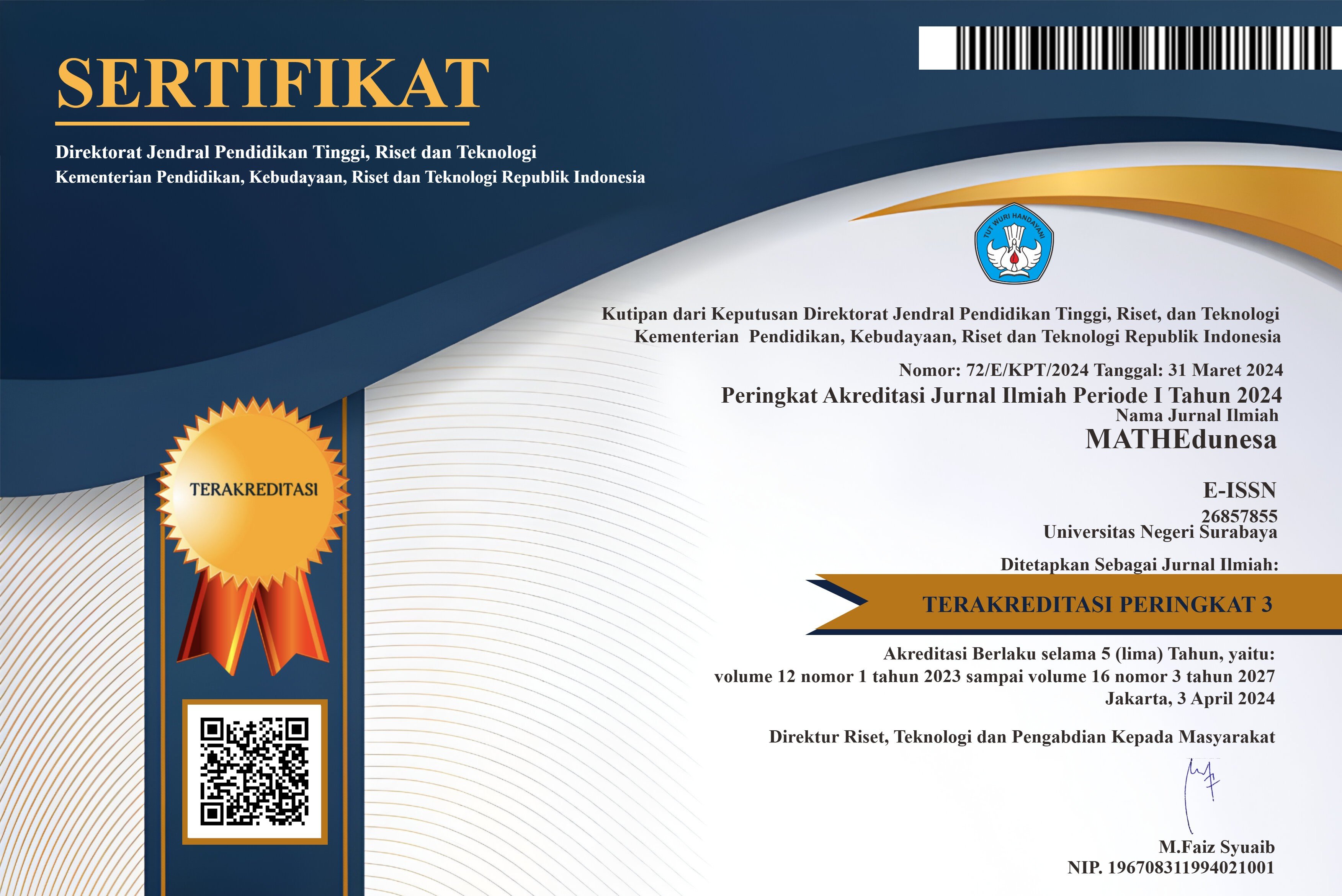The Decision Making Process of High School Students with High Mathematical Ability in Solving Social Arithmetic Problems
DOI:
https://doi.org/10.26740/mathedunesa.v9n1.p194-201Abstract
The decision making process is the individual steps in choosing an appropriate alternative choice from the various alternatives available to solve the problem. The purpose of this study is to describe the decision making process of high school students with high mathematical abilities in solving social arithmetic problems. The research approach used in this study is qualitative research. While the type of research is a qualitative descriptive study. The process of collecting data uses several instruments consisting of mathematics ability tests, social arithmetic problem solving tests, and interview guidelines. This research was conducted on 11th grade high school students in one of the state high schools in Sidoarjo. The subjects of this study consisted of one student with high mathematical abilities. The data collection method in this study began with the provision of mathematics ability tests for all students followed by selecting one subject with high mathematical ability through several considerations. The next step, the subject is given a problem solving test and interviewed to get the decision making process carried out by the subject. The results showed that students with high mathematical abilities carried out a series of activities in the stages of the decision making process, namely define the decision, understand the context, identify the options, prioritise the options, evaluate the consequences, review the decisions, and take actions.Downloads
Download data is not yet available.
Downloads
Published
2020-06-28
Issue
Section
Articles
 Abstract views: 201
,
Abstract views: 201
, PDF Downloads: 221
PDF Downloads: 221




